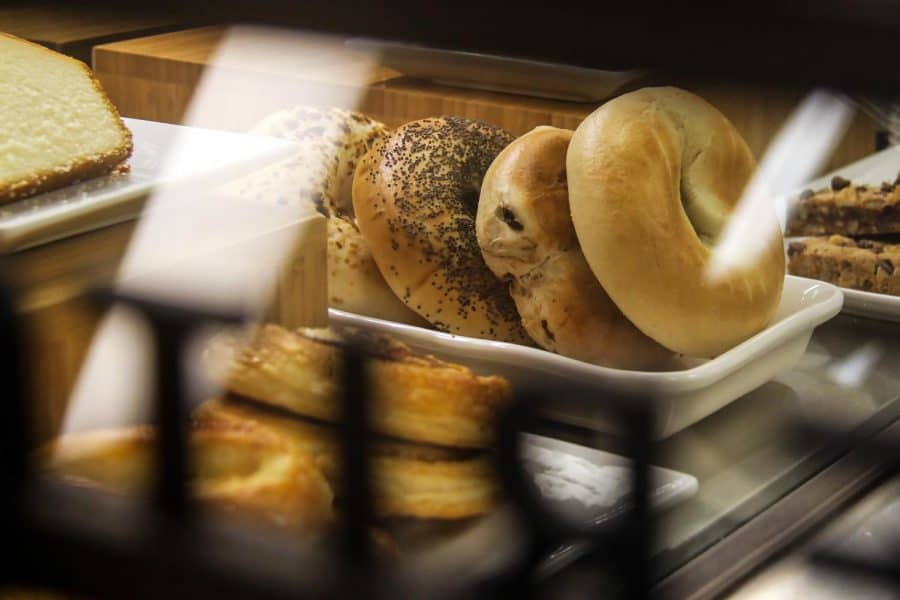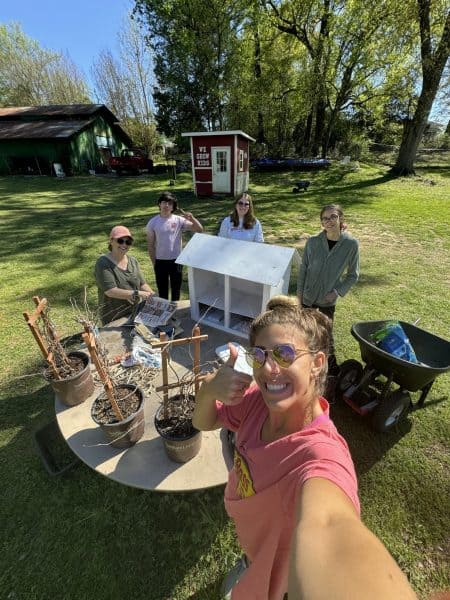Java City serves upgraded security system, design
August 29, 2019
Despite the ongoing renovations to the University of Alabama’s Amelia Gayle Gorgas Library, the Java City Coffee bar reopened this week. While some people are talking about the new stylistic updates, others have concerns over whether its new surveillance system is over-the-top.
As the fall semester picks up, Alabama students will find themselves slowly slipping back into their usual routines: early mornings in classes, long nights studying and all the chaos in between. This recurring practice requires a sharp and attentive mind, and in many cases, one that has been fueled by caffeine. While there are numerous places around Tuscaloosa to pick up the commodity, the convenience of Java City Coffee in the Amelia Gayle Gorgas Library makes it one of the most popular spots on campus.
Since May 6th, Gorgas has undergone a top-to-bottom renovation that “provides modern, efficient spaces for our students and addresses all of the infrastructure needs of the buildings,” said Donna Adcock, director of public relations for University Libraries, this past May.
Since the first phase of construction began, which includes projects such as the addition of multiple gender-neutral bathrooms and larger spaces to ensure ADA compliance, the coffee shop received a facelift of its own. Parallel to the goal of the entire library, Java City’s updated modern look has excited both students and faculty.
“I like the change,” Jerry Aguilera, a sophomore majoring in news media, said. “It is really impressive. I would most definitely come here again. I like the ambiance, and it’s nice having a spot to grab coffee and do homework all-in-one.”
Bailey Fletcher, the current Java City location manager, began working for Bama Dining while he was a student here at the University, and then went on to accept a full-time managerial position as an alum.
“They were going for a new, modern design that maximized efficiency,” Fletcher said. “The shop is bigger, and there is more space behind the counter.”
Fletcher said that this was one of the first shops in the Java City chain to undergo the modernization that they will soon all receive.
While the clean white subway tiling and sleek minimalist color scheme of the shop are eye-catching, something else has been stopping customers ‐ and even passersby ‐ in their tracks. One of the most obvious renovations is the electronic kiosk where customers are welcome to place their orders on a tablet to speed up the ordering process. To encourage the “honor system,” where students are honest about what they paid for, ordered, and received, a large television monitor has been placed over the kiosk. This in-your-face technology has already gotten some negative backlash from students.
“I don’t like that at all,” first-year MFA grad student Aurielle Marie said. “I don’t understand why it is there.”
Marie referenced the Hartsfield-Jackson Atlanta International Airport, which is commonly utilized by University of Alabama students, where a similar monitor was put in place to allow airplane passengers to use a facial recognition feature to check into their flights, and how that type of technology made her “uncomfortable.”
“Who knows where that information is going and what it might be used for,” Marie said. “It just makes me feel like I am doing something wrong.”
This seemingly innocent monitor may go so far as to turn students away rather than simplify their purchase of coffee and pastries.
“Well, Starbucks isn’t recording us,” Marie said.
Other students, though less suspicious of the monitor’s intent, aren’t entirely comfortable with the idea of buying coffee on-camera.
“I don’t think the monitor is meant for harm,” Lacey Kohler, a sophomore studying environmental law through the New College, said. “But it is a little suspect and creepy, and I don’t really want to have to stare at myself on this huge screen while ordering.”
Despite some patrons’ discomfort, the cameras could help students keep their hands to themselves if they’re tempted to sneak an unpaid-for treat.
“We are going for the same self-checkout approach as Target or Walmart,” Fletcher said. “It [the monitor] really is more of a psychological thing … We hope that people will see themselves being recorded and are less inclined to steal.”
Many, such as Aguilera, think the technology is for the better.
“I’m sure it helps,” Aguilera said. “I remember last year, all of this [the fridge and snack cabinet] was all very open. Since safety and security is such a priority all over the rest of campus, I’m not surprised that it is one here too.”











